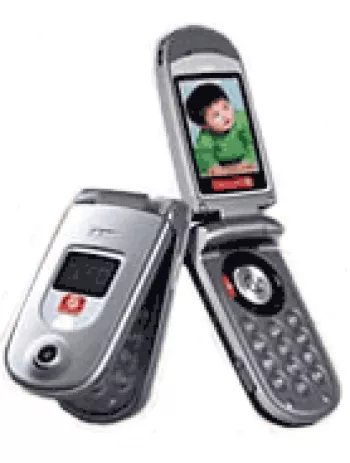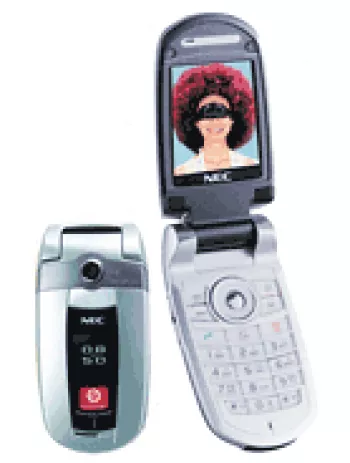
Overview of NEC N750
The NEC N750 is a feature phone announced in the first quarter of 2005. Like many other feature phones of its era, it aimed to provide essential communication features along with a few multimedia elements. Discontinued today, the NEC N750 serves as a nostalgic reminder of the simpler times in mobile technology before smartphones dominated the market.
Network Capabilities
The NEC N750 operates on GSM networks, supporting frequencies of GSM 900, 1800, and 1900. This tri-band capability allowed users a certain degree of flexibility and mobility across different geographic regions. However, it did not support EDGE technology, which limited the speed of data connectivity especially when compared to later models offering 3G or even 4G capabilities.
Launch and Discontinuation
Officially announced in the first quarter of 2005, the NEC N750 has since been discontinued. It represented part of a broader product lineup from NEC during a time when new handsets were frequently released to keep up with evolving consumer demands and technological advancements.
Design and Build
Weighing 97 grams and with dimensions of 92.9 x 45.8 x 23.6 mm, the NEC N750 was compact and portable, easily fitting into pockets and small bags. Its design featured a silver exterior, a common color choice for many devices of its period, which gave it a sleek yet understated appearance. It used a Mini-SIM format, standard in many mobile phones of that era.
Display Specifications
The phone was equipped with a TFT display capable of showing 256K colors, which was quite commendable for its time. The screen resolution was 176 x 220 pixels, offering clear visibility for basic phone functions and simpler graphics. Despite not having a large screen by today's standards, the display was adequate for the tasks the N750 was designed for.
Memory and Storage
When it came to memory, the NEC N750 did not have a card slot for expandable storage, a limitation for users looking to store extensive media or files. However, it did support a phonebook with a photo call feature, and could keep records of 20 dialed, 20 received, and 20 missed calls, which was standard functionality for a feature phone at the time.
Camera Specifications
The phone came with a single 1.3 MP main camera, which was considered decent for basic photography on a mobile device back then. It also supported video recording, though the quality and length of recordings were limited by the available storage and overall performance capabilities.
Sound and Alerts
The audio system featured downloadable polyphonic ringtones and supported vibration alerts. It did not include a loudspeaker or a 3.5mm headphone jack, reflecting its status as a basic feature phone rather than a media-centric device.
Communication Features
For connectivity, the NEC N750 included Bluetooth 1.1, allowing for limited wireless communication and file transfers with other Bluetooth-enabled devices. It did not have WLAN, GPS, or FM radio capabilities. The phone also relied on a proprietary USB connection for its data transfer needs.
Software and Features
Running as a feature phone, the N750 supported basic messaging services including SMS, MMS, and email. It included a WAP 2.0/xHTML browser for simple web browsing. Games and Java applications (MIDP 2.0) were available for some entertainment and productivity purposes, making use of the limited processing power and storage.
Battery Life
The device was powered by a removable Li-Ion 700 mAh battery. Standby time was up to 140 hours, with a talk time of up to 2 hours. The modest battery life was reflective of the device's power needs, which were considerably lower without power-draining programs and systems commonplace in modern smartphones.
Conclusion
The NEC N750, with its set of features and specifications, sits comfortably within the category of functional devices that served a particular purpose during its time. As it stands, it is a reminder of the days when phones were primarily for call and text communication, with additional features being a luxury rather than an expectation. It offers an intriguing look back at technological evolutions and shifts in consumer demands over the years.
Key Features of NEC N750
- Compact and Lightweight: Dimensions of 92.9 x 45.8 x 23.6 mm and weighs only 97 g.
- GSM Network Support: Compatible with GSM 900 / 1800 / 1900 bands.
- Vibrant Display: TFT screen with 256K colors and resolution of 176 x 220 pixels.
- 1.3 MP Main Camera: Equipped with a camera capable of capturing videos.
- Bluetooth 1.1: Wireless connectivity for transferring data.
- SMS, MMS, and Email Messaging: Various communication options available.
- Java Support: Includes Java MIDP 2.0 for application compatibility.
- Downloadable Polyphonic Ringtones: Customizable alert tones.
- Removable Li-Ion 700 mAh Battery: Offers stand-by time of up to 140 hours and talk time of up to 2 hours.
Disadvantages of NEC N750
- Outdated network technology: Only supports GSM and does not support modern networks like 3G or 4G.
- No EDGE support, which limits internet speed.
- No memory card slot for expandable storage.
- Lack of a loudspeaker and no 3.5mm headphone jack.
- Bluetooth version 1.1, which is outdated and offers limited functionality.
- No WLAN support, limiting wireless connectivity options.
- No GPS or radio functionality.
- Proprietary USB connection instead of a standard USB port.
- Short battery life, with up to 2 hours of talk time.
- Discontinued product, making support and repairs more challenging.
- No secondary (selfie) camera.
View Also
More Phones
All Rights Reserved +14266 Phones © Mobilawy 2025

























